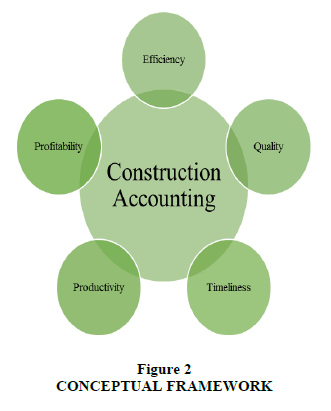Successful Construction Projects Start with Proper Construction Accounting Practices
Successful Construction Projects Start with Proper Construction Accounting Practices
Blog Article
The Essential Function of Construction Bookkeeping in Ensuring Financial Precision
In the facility landscape of building and construction management, the role of construction accounting emerges as an essential component in keeping economic honesty. By giving a structure for accurate tracking of costs and incomes, this specialized accounting self-control not just aids in effective project oversight but additionally boosts stakeholder confidence.
Importance of Accurate Financial Monitoring
Exact monetary tracking is the backbone of reliable construction bookkeeping, acting as a critical device for job managers and economic policemans alike. In the extremely dynamic building and construction environment, where budgets can rise and fall and timelines can change, exact financial monitoring makes sure that all monetary activities are documented and monitored in actual time. This method enables stakeholders to make enlightened decisions based on up-to-date economic data, hence minimizing the risk of overspending and boosting job success.
Moreover, precise economic tracking promotes conformity with governing demands and market requirements. By keeping in-depth documents of expenditures, incomes, and task prices, building firms can conveniently create needed paperwork during audits and examinations. This openness not only promotes count on amongst partners and clients however additionally alleviates possible legal problems.

Key Components of Construction Accountancy
In the realm of building audit, numerous vital components play a pivotal function in making sure financial precision and project success. Among the most crucial aspects is job costing, which includes tracking all expenses related to a specific job, including labor, products, and overhead. This procedure permits accurate budgeting and forecasting, making it possible for building firms to evaluate profitability properly.
An additional necessary component is adjustment order administration, which deals with alterations to the initial contract. Precise documentation and monitoring of these changes are important for maintaining job budgets and timelines. Furthermore, financial reporting plays an essential role, giving stakeholders with insights right into project efficiency and total monetary wellness.
Cash flow management is also significant, as it makes sure that the firm has adequate liquidity to satisfy its commitments while handling task expenses. Conformity with governing requirements and tax responsibilities is a critical element of building and construction audit, safeguarding the business from legal consequences.
Effect On Task Administration
Efficient building and construction audit significantly influences project management by providing crucial economic data that informs decision-making. Exact economic documents make it possible for task supervisors to track budget plans, projection cash streams, and evaluate job success in real time. This financial insight is vital for making educated choices relating to source allowance, subcontractor choice, and project scheduling.
Furthermore, building bookkeeping helps with risk management by recognizing variations between approximated and actual prices. When job supervisors can promptly determine discrepancies, they can carry out restorative steps to mitigate possible monetary losses. This proactive strategy not just assists in maintaining task timelines however also boosts general task effectiveness.
Additionally, reliable building accounting sustains communication amongst stakeholders, including clients, capitalists, and team participants. construction accounting. blog Transparent financial coverage promotes count on and cooperation, making sure that all parties are lined up on project objectives and financial expectations
Ideal Practices for Financial Accuracy
Developing best look at this website methods for financial accuracy within building and construction accounting is necessary for guaranteeing task success. A key method is maintaining precise record-keeping. This includes tracking all purchases connected to labor, materials, and expenses costs in real-time, which assists to recognize discrepancies early and makes certain that monetary information is constantly up to date.

Another finest method is carrying out a durable budgeting process. Precise budgeting not only assists in projecting task prices yet additionally gives a benchmark against which actual costs can be determined. Consistently contrasting real expenses to budgeted amounts enables timely changes and far better economic control.
In addition, carrying out regular audits is important. Internal audits can determine prospective mistakes or fraudulent tasks prior to they intensify, while external audits provide an honest evaluation of monetary practices, ensuring conformity with market standards.
Educating team in monetary monitoring and audit principles is also essential. Knowledgeable personnel are much better furnished to detect mistakes and understand the importance of monetary accuracy in task administration.
Last but not least, promoting open interaction between task managers and economic teams boosts partnership, ensuring that financial choices are aligned with task goals (construction accounting). These ideal practices jointly contribute to a strong foundation for monetary precision in building accounting
Devices and Software for Building Audit
Selecting the right devices and software application for building and construction bookkeeping can dramatically improve economic management procedures. The complexity of building and construction projects necessitates specific audit services that fit distinct operations, project tracking, and monetary coverage needs.
Among the leading software application choices, Sage 300 Building and Realty (formerly Sage Timberline) provides detailed attributes customized to construction companies, including task management, payroll combination, and in-depth economic coverage. copyright Desktop computer, while extra basic, provides personalized features that are advantageous for smaller building firms, enabling them to handle billings, costs, and pay-roll successfully.
One more noteworthy choice is Perspective Vista, which integrates audit with task administration, making real-time data available for informed decision-making. Procore additionally attracts attention by offering a robust system that integrates project management with economic tools, guaranteeing all facets of a project are integrated.
Cloud-based remedies like CoConstruct and Buildertrend use these details flexibility and remote accessibility, enabling teams to team up effortlessly, no matter of place. Ultimately, picking the suitable software rests on the particular demands of the building firm, the size of jobs, and budgetary restraints, guaranteeing that economic accuracy is kept throughout the project lifecycle.
Conclusion
In final thought, building and construction audit is important for maintaining financial precision throughout a job's lifecycle. Inevitably, the application of robust building bookkeeping practices substantially contributes to the general success and economic stability of construction jobs.
Exact monetary tracking is the backbone of reliable building accounting, offering as an essential tool for project supervisors and financial police officers alike. In the highly vibrant construction atmosphere, where budgets can rise and fall and timelines can shift, exact economic tracking ensures that all monetary activities are recorded and kept track of in genuine time. In addition, financial reporting plays a critical duty, supplying stakeholders with understandings into task efficiency and total economic health and wellness.
Precise financial documents allow job managers to track spending plans, forecast money streams, and evaluate task productivity in genuine time. Ultimately, the execution of durable construction accountancy methods considerably adds to the general success and financial honesty of construction tasks.
Report this page